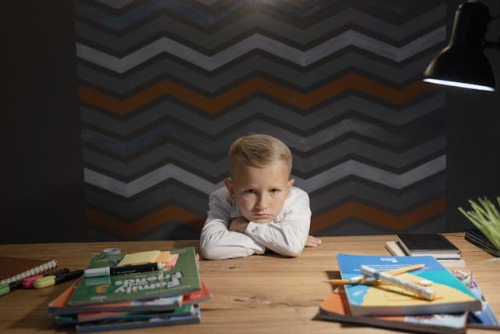Effects of Bad Parenting on a Child’s Mental Health and Future
What happens when parenting patterns—whether intentional or not—are consistently negative? The effects of bad parenting on a child can leave lasting marks on their mental health, relationships, and future opportunities.

The good news? Awareness is the first step to change. Let’s explore the short- and long-term effects of bad parenting, why they happen, and how parents can reverse course to build a healthier connection with their child.
1. Understanding the Ripple Effect of Parenting
Think of a child’s mind like a soft clay sculpture. Every word, tone, and action leaves an imprint. Over time, these imprints harden into beliefs—about themselves, about other people, and about the world.
According to Dr. Laura Markham, clinical psychologist and author of Peaceful Parent, Happy Kids,
“Parenting patterns, repeated over time, literally shape the architecture of a child’s brain, especially in areas related to emotional regulation and decision-making.”
This means that parenting isn’t just about the “here and now.” It’s about wiring the emotional toolkit your child will carry into adulthood.
2. Emotional Consequences of Bad Parenting
Low Self-Esteem
When children face constant criticism, neglect, or lack of emotional support, they often internalize the belief that they are “not enough.” This can lead to a lifetime of self-doubt and a tendency to undervalue their abilities.
Example: A child repeatedly told they “never do anything right” might grow up avoiding new challenges for fear of failing.
Chronic Anxiety or Depression
Children who live in environments where love feels conditional—or where conflict is constant—may develop chronic anxiety or depression. Their nervous systems learn to stay on high alert, anticipating criticism or disapproval.
A 2021 study in the Journal of Child Psychology and Psychiatry found that children exposed to harsh parenting were 2.5 times more likely to develop anxiety disorders in adolescence.
Poor Emotional Regulation
Without healthy modeling, children may struggle to identify, express, and manage emotions. This can manifest as angry outbursts, withdrawal, or emotional shutdowns when faced with stress.
3. Social and Relationship Impacts
Difficulty Trusting Others
Bad parenting—especially neglect or inconsistent affection—can damage a child’s sense of security. This lack of trust often carries into friendships, romantic relationships, and even professional connections.

Conflict-Prone Interactions
If a child grows up seeing conflict handled through shouting, sarcasm, or avoidance, they’re likely to replicate those same patterns as adults.
Isolation or People-Pleasing
Some children react to bad parenting by pulling away from peers, while others overcompensate—always saying “yes” and putting others’ needs above their own to gain approval.
4. Academic and Career Impacts
Reduced Academic Performance
Emotional distress can affect concentration, memory, and motivation. A child distracted by home stress may find it harder to keep up academically.
Fear of Failure in Career Choices
Children raised in overly critical or controlling environments may stick to “safe” career paths rather than pursuing their passions, fearing the risk of making the “wrong” choice.
Lower Resilience in the Workplace
A lack of early problem-solving opportunities can mean adults struggle to handle workplace challenges or feedback constructively.
5. Long-Term Life Outcomes
Strained Adult Relationships
Unhealed wounds from childhood often resurface in adult partnerships. Trust issues, fear of intimacy, or over-dependence can all stem from early experiences.
Mental Health Disorders
Depression, anxiety, PTSD, and substance abuse issues are more common among those who experienced emotional neglect or abuse as children.
Generational Cycles
Perhaps the most sobering effect: without intervention, bad parenting often repeats. Adults unconsciously mirror the patterns they experienced, passing the same struggles on to their own children.
6. Why These Effects Happen
Children depend on caregivers for more than food and shelter—they look to them for emotional safety, validation, and guidance. When these needs aren’t consistently met, the child’s brain interprets the world as unsafe or unreliable.
Neuroscientist Dr. Bruce Perry explains,
“Chronic stress in childhood changes how the brain processes threat, emotion, and reward. This makes certain adult struggles almost inevitable without intervention.”
7. Reversing the Damage: Is It Possible?
Absolutely. The human brain—especially in children—is remarkably adaptable. While the scars of bad parenting can’t be erased, new positive experiences can rewire patterns and build resilience.
Practical Steps for Parents

- Acknowledge the Past: Awareness of harmful patterns is the first step to change.
- Prioritize Emotional Connection: Set aside daily one-on-one time with your child, free from distractions.
- Model Healthy Coping Skills: Show how you manage frustration, sadness, or disappointment.
- Seek Support: Parenting classes, therapy, or peer groups can offer new tools and accountability.
8. When to Seek Professional Help
If you notice persistent signs of emotional distress in your child—such as withdrawal, aggression, or sudden changes in academic performance—it’s worth consulting a pediatrician or child psychologist.
9. Key Takeaways on the Effects of Bad Parenting
- Some effects on the child can be immediate or long-term such as on mental health, relationships, and career success.
- These effects are not inevitable—parents can change patterns at any stage.
- Every small step toward positive, consistent parenting can help repair trust and rebuild resilience.
Final Thought on the Effects of Bad Parenting
Parenting is about presence, growth, and love, no need to worry about being perfect. Recognizing the effects of bad parenting isn’t a reason to feel hopeless; it’s an invitation to create a new legacy.
The most powerful thing you can do is show your child that change is possible—and then live that change, day by day.
Psychology Behind Bad Parenting
Break the Cycle of Bad Parenting





















